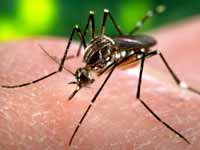 The global market for halal products is US$560 billion (RM2.12 trillion) a year.
The global market for halal products is US$560 billion (RM2.12 trillion) a year. The concept of halal -- meaning "permissible" in Arabic -- has traditionally been applied to food. Other goods and services can also be certified halal, including cosmetics, clothing, pharmaceuticals, financial services and even tour packages.
Malaysia has been globally recognised as the world’s halal food hub, despite its cosmopolitan, multi-religious nature. Malaysia has been aggressively marketing itself as a global centre for the manufacture and export of halal products, in line with its moderate version of Islam that emphasises economic and scientific progress.
Foreign Muslims are attracted to Malaysia not only by the beautiful scenery and the prevailing peace, but also by the halal culinary delights commonplace in the country. Between 1999 and 2003, tourists from Muslim Middle East countries to Malaysia rose from about 20,000 to more than 800,000. And this number is increasing.
 The certification of halal food has been conducted throughout the country since 1982 by the Department of Islamic Development of Malaysia (JAKIM). The Codex Alimentarius Commission, which is responsible, under the United Nations,for regulations of food preparation globally, has cited Malaysia as the best example in the world in terms of justification of halal food.
The certification of halal food has been conducted throughout the country since 1982 by the Department of Islamic Development of Malaysia (JAKIM). The Codex Alimentarius Commission, which is responsible, under the United Nations,for regulations of food preparation globally, has cited Malaysia as the best example in the world in terms of justification of halal food. The Malaysian model has been regarded as the role model for the development of world halal food industries. According to MITI, quoting sources from the International Market Bureau Canada, the total world Muslim population is estimated to be 1.8 billion, and based on the estimated expenditure per capita for food of US$0.85 (RM3.23) a day, it is estimated that the market for halal products is US$560 billion (RM2.12trillion) a year.
In Malaysia, 60 percent of the population are Muslims and if one were to estimate the per capita expenditure for food as RM1 a day, then thedemand for halal products is more than RM5 billion a year.
From 1995 to June 2003, the Malaysian Industrial DevelopmentAuthority (MIDA) had issued licences to 424 food manufacturing companies with a total investment of RM5.9 billion.
Determining the “halalness” of a product goes beyond ensuring that food is pork-free. Carnivorous animals, amphibians (frogs and mangrove crabs) and all insects except grasshoppers are not halal. Intoxicants in any form are also off-limits.
Meat from permissible animals such as poultry and cattle must be slaughtered inaccordance with Islamic rites to render them halal. Halal food also adheres to stringent standards in hygiene and sanitation, and must not be harmful to health.
Halal food certification refers to the examination of food processes, from the preparation, slaughtering, ingredients used, cleaning, handling and processing, right down to transportation and distribution.
The concept of halal food is truly from the farm to the table, and must be nutritious and prepared from permissible ingredients in a clean and hygienic manner
Contamination from najis (filth as defined by Islamic law) or haram (prohibited)elements also renders food non-halal. Sticky areas include ingredients, genetically modified food and utensils used in processing.
Cod liver oil may be halal, but the oil might be contained in a bovine gelatin capsule produced from cows that havenot been slaughtered in line with Islamic rites, making the supplement non-halal.
Cows might be halal animals, but splice their genes with porcine DNA, and theresult is a haram hybrid. Another example is that, innocuous items like biscuits might list only halal ingredients such as flour, butter and sugar, but the egg-yolk glaze might be applied with a brush made from pig bristles, making the biscuits non-halal.
Logistics and packaging are vital too. Non-halal and halal goods must also be kept separately in the storage or during transportation and distribution in order to prevent contamination.
Since Malaysia is serious to position itself to be the halal food hub center in the Asian region and is the pioneer in the globalisation of Halal certification, the relevant authorities should implement strictker rules and regulations.
Government authorities such as JAKIM, JAIS, SIRIM and MOH will help investors in obtaining global Halal Status and also boost the implementation of Hazard Analysis and Critical Control Points (HACCP), Good Manufacturing Practices (GMP), Veterinary Inspection NO and ISO.
As a pioneer in promoting halal food globally, Malaysia’s locally developed halal certification serves as an example for other nations and has been commended by the United Nations as a model system. Currently, halal products certified in Malaysia run the gamut from processed chicken and beef products to ice cream, chocolate and food supplements. This is in line with the nation’s aim of being the regional hub for halal food products.
Opportunities
The Government of Malaysia through the Ministry of Agriculture and the Department of Veterinary Services has identified a few potential places to be formulated and developed as Halal Food Industrial Zones. These places are:
- Pulau Indah in Selangor
- Pedas Halal Park in Negeri Sembilan
- Serkam Pantai in Melaka
- Paya Pahlawan in Kedah
- Pantai Remis in Perak
- Gambang in Pahang




